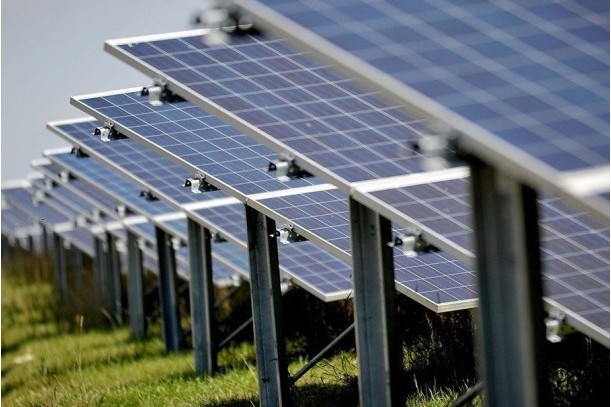Global clean energy investment drops 14 per cent to $118 billion

Summary
A hiatus in renewable energy project deals in China pushed down global investment in H1 2019.
A hiatus in renewable energy project deals in China led to a 14 per cent decline in global clean energy investment in the first half (H1) of 2019, compared to H1 2018, according to a new report by Bloomberg New Energy Finance (BNEF). The latest report by the subsidiary of Bloomberg also shows that China, the world’s biggest clean energy market, saw a 39 per cent plunge in renewable energy project deals in H1 2019.
According to BNEF – which provides primary research on clean energy, advanced transport, digital industry, innovative materials, and commodities – the plunge in activity in China was caused by the country’s shift away from government-set tariffs to auctions for new wind and solar capacity. Asset finance of utility-scale generation projects such as wind farms and solar parks was also down 24 per cent to $85.6 billion, due in large part to the China factor. Financing of small-scale solar systems of less than 1MW was, however, up 32 per cent to $23.7 billion in H1 of this year.
“The slowdown in investment in China is real, but the figures for first-half 2019 probably overstate its severity,” Justin Wu, head of Asia-Pacific for BNEF, said. “We expect a nationwide solar auction happening now to lead to a rush of new PV project financings. We could also see several big deals in offshore wind in the second half.”
Two multibillion-dollar projects in Dubai and Taiwan at total costs of $4.2 billion and $5.7 billion, respectively, were other highlights of global clean energy investment in the review period, according to BNEF. While the Dubai project is a solar thermal and photovoltaic complex at 950MW, the Taiwanese projects are two offshore wind arrays in the sea off Taiwan (640MW and 900MW). The Dubai deal, signed in late March, is the biggest financing ever seen in the solar sector.
BNEF said the latest investment figures show mixed fortunes for the world’s major markets. The “big three” of China, the U.S. and Europe all fell, but with the U.S. down a modest 6 per cent to $23.6 billion. The European market was down 4 per cent to $22.2 billion compared to 1H 2018. It’s worth noting that the percentage declines in the other markets are far less than China’s 39 per cent drop.
Japan attracted $8.7 billion of investment, up 3 per cent from 1H 2018; India recorded $5.9 billion, up 10 per cent as the country continued its drive toward its ambitious target for 175GW of renewable energy by 2022. Meanwhile, investment in Brazil was up 19 per cent, at $1.4 billion.
In Europe, Spain was the star performer, according to BNEF. Investment in the country grew by 235 per cent to $3.7 billion, compared to a similar period in the year before. Investment in Germany dropped by 42 per cent to $2.1 billion; the U.K. was up 35 per cent to $2.5 billion and France dropped 75 per cent to $567 million.
Venture capital and private equity funding of clean energy companies in 1H 2019 was down 2 per cent to $4.7 billion. The research company said there were three exceptionally large deals. There were $1 billion each investment in Swedish battery company, Northvolt, and U.S. electric vehicle battery charging specialist, Lucid Motors. There was another $700 million for another U.S. EV player, Rivian Automotive.
BNEF said its data on clean energy investment excludes large hydro projects, and company-level investment in renewables and energy smart technologies.
Related
-
Shell sees prospects for smart energy ideas in Nigeria
Over the years, SPDC has supported students from Nigeria universities to participate in the global Shell Eco-Marathon, a ...
-
Total raises $15.8 billion to develop Mozambique LNG project
The Mozambique LNG project will include a two-train liquefaction plant with a capacity of 12.9 million tonnes per annum.
-
Finnfund invests $20m in fund for clean energy, climate mitigation in Africa
Evolution III closed at $199.4 million in conditional commitments from seven international investors, including several ...










